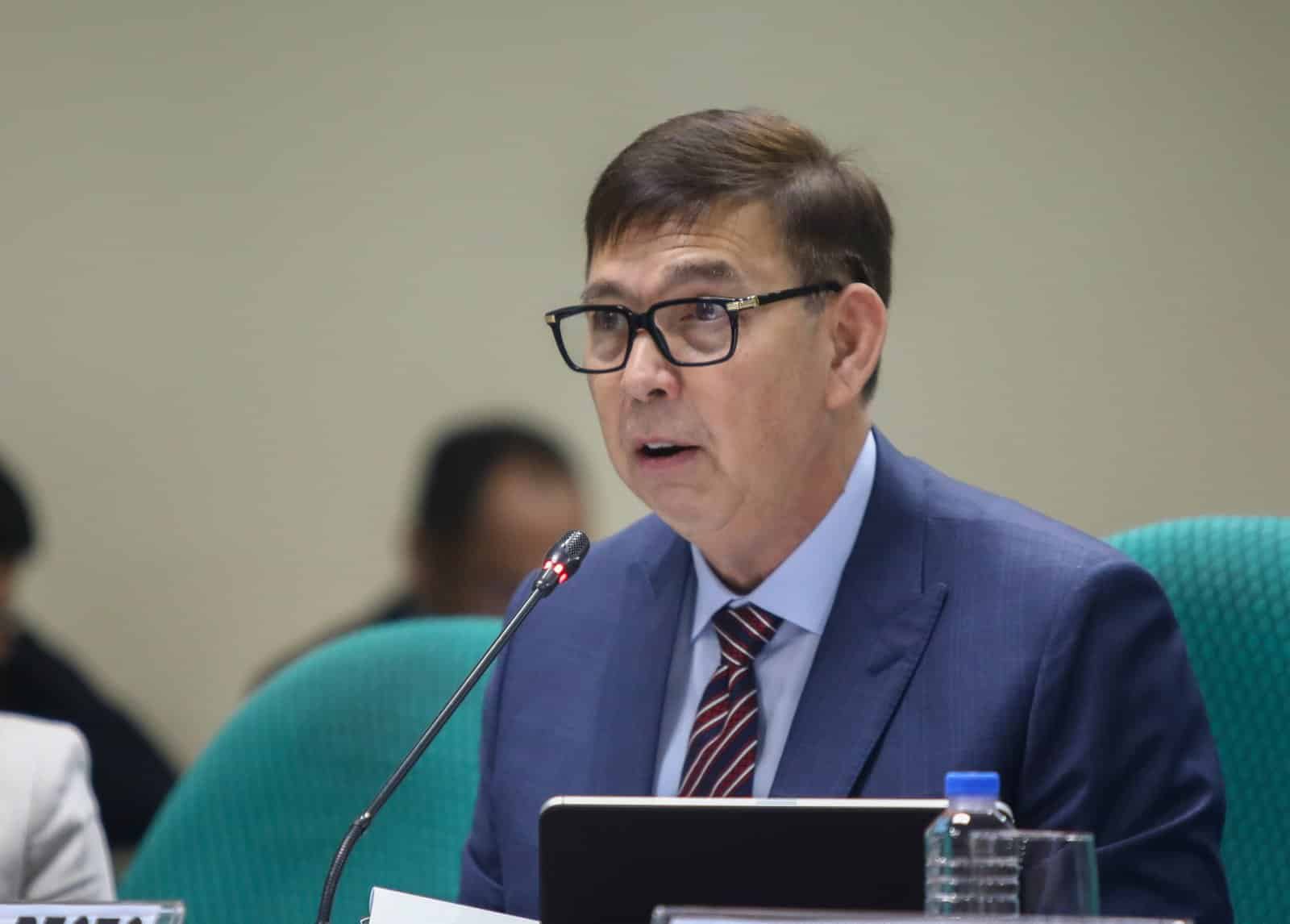Maharlika yet to make an investment – Recto

Finance Secretary Ralph G. Recto—(Senate Public Relations and Information Bureau)
MANILA, Philippines — The much-vaunted Maharlika Investment Corp. (MIC) has practically remained a paper company more than a year after Congress passed the law establishing the country’s first sovereign wealth fund, senators learned on Wednesday.
At the resumption of the Development Budget Coordination Committee (DBCC) briefing, Finance Secretary Ralph Recto admitted that the MIC has yet to invest its initial capitalization of P125 billion.
“Admittedly, it is taking time to identify investments that the (MIC) can make,” Recto said in response to a question from Sen. Grace Poe, who presided over the DBCC hearing as chair of the Senate finance committee.
READ: Maharlika ready to start investing
“As you know, it is like a start-up (company). We just passed the law last year so they’ve been in operations for about seven months right now,” he said.
Article continues after this advertisementAccording to Recto, MIC president and CEO Rafael Consing Jr. has already been scouring for possible business ventures.
Article continues after this advertisement“The CEO is looking for opportunities, but he has not come to the board for any particular investment,” said Recto, who chairs the MIC as head of the Department of Finance.
In September last year, the state-owned Land Bank of the Philippines (LandBank) and Development Bank of the Philippines (DBP) remitted P75 billion to the national treasury as seed money for the MIC.
Another P50 billion was added to its start-up capital as the national government’s share.
Money still intact
Recto said the MIC, the state-run company created to manage the Maharlika Investment Fund (MIF), did not ask for additional allotment in the proposed P6.352-trillion national budget for 2025.
The MIC, he said, would soon be moving into its headquarters and that it was still in the process of hiring personnel.
“We’re still determining the pay packages to be given to the employees of the (MIC), and they’re scouting for investments,” said the senator-turned-finance secretary.
Poe, who was among the senators who voted for the law setting up the MIF, noted that the funds that LandBank and DBP had contributed to the MIC should have been earning interest had the money remained with them.
“This is something we had debated about on the Senate floor, that the money (might) actually just be used for administrative fees,” Poe said.
“But we are anticipating that (MIC) will make substantial investments … in infrastructure. Now, can you tell me if you deem that as a worthy investment? Can you already invest?” she asked.
In response, Recto said they can place an investment “hopefully within the year.”
Poe then quizzed Recto about the status of the investment fund and the expenses that the MIC has so far incurred since its inception, including the salaries of Consing and the other officials.
The finance chief said the entire amount was still with the Bureau of Treasury and that it would be earning 4.6 percent in annual interest.
“How much have they spent? Very minimal because they have yet to hire employees,” Recto said.
He said he and the other members of the Cabinet who comprise the MIC board have also yet to receive any compensation.
“It’s the private sector representatives who will be paid eventually. But as of today, they’ve not been paid a single centavo as well,” he said.
Even Consing, who had reportedly demanded a basic monthly pay of P2.5 million, has not received his salary since the MIC was still studying the compensation package and his employment contract, according to Recto.
“That’s quite interesting,” Poe said before concluding the briefing, which lasted nearly seven hours.
Effect on state banks’ lending
Sen. Risa Hontiveros, who had opposed the establishment of the MIF, lamented that the government had to take away funds from the two state-run banks only to place the money in the national treasury.
“(MIC) still has no output … In the meantime, the capital of DBP and LandBank was reduced,” she said.
Asked by Hontiveros if it was true that the loanable funds of DBP and LandBank went down by P9 billion for every P1 billion they invested in the MIC, Recto said: “Possibly.”
“Possibly? I thank the good secretary for his candor,” the senator said. “Even if it opens up possibly an inconvenient truth for both of us in the DBCC and Congress, at least it raises a red flag for us.”
The MIF bill was signed into law by President Marcos on July 18, 2023.
Even before it was signed, the fund drew much controversy and widespread criticism.
In September 2023, a petition seeking to stop the MIF rollout was filed before the Supreme Court by incumbent and former lawmakers who wanted the high tribunal to eventually declare the MIF unconstitutional.
The fund was poised to make its first investment last July after the MIC approved its investment and risk management framework. —with a report from Inquirer Research